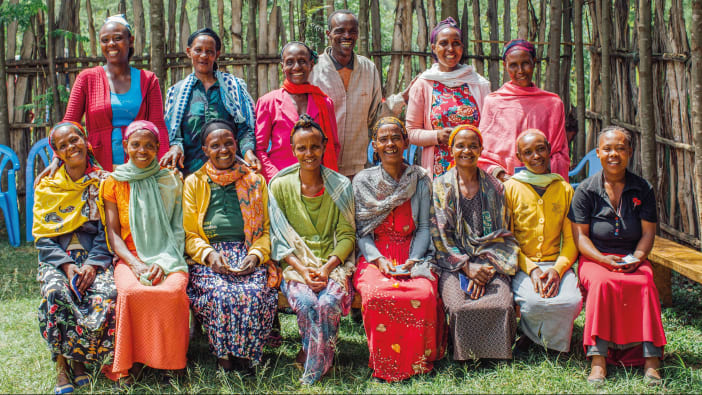Many people who suffer injustice feel unable to take any action. They may fear further injustice, they may be poor and feel they are of no importance or they may lack understanding of their rights. The advocacy department in Kale Heywet Church in Ethiopia has been training church leaders as advocacy practitioners to support people when they suffer injustice.
The practitioners have received training for one month a year over a four-year period. The training is given by six lawyers, all of whom are church leaders within the Kale Heywet Church and other evangelical churches. The courses cover:
- the Ethiopian constitution
- introduction to law
- human rights
- a detailed study of laws concerning business, public finance, labour, civil society and penal law
- Sharia law (as over 30% of the population are Muslim)
- support courses in English and mathematics.
The underlying basis for the training is a biblical quote from Proverbs 31:8-9, ‘Speak up for those who cannot speak for themselves, for the rights of all who are destitute. Speak up and judge fairly; defend the rights of the poor and needy.’
Forty-six trainees graduated in 2005. Their certificate is recognised by the government. Indeed, two trainees have already been offered work by the government, though the church is reluctant to lose people with these skills. The practitioners, who come from all over the country, have formed themselves into local and national networks to support each other. Some would like to become full-time advocacy workers. Their training has given them the understanding and confidence needed to speak out and challenge injustice in the courts.
An example of advocacy in practice
One of the practitioners, Endale Ero, found two girls crying. When he asked about the problem, they told him that they had applied and been interviewed and accepted for posts within the local government. However, when they reported for work they found that others had been given the posts. Endale asked for permission to speak on their behalf. He took the issue to court and won the case for them. Not only did they receive their jobs but they were also compensated.
Negussie Zewdie, Advocacy Department, Kale Heywet Church, PO Box 5829, Addis Ababa, Ethiopia Email: [email protected]








